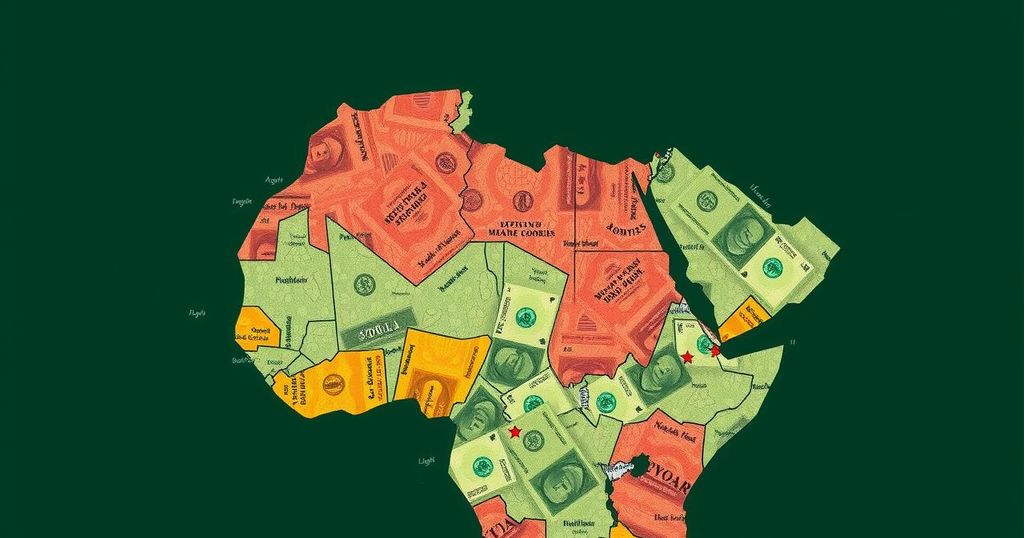This article analyzes the complex relationship between public debt and the right to education in Zimbabwe, Eritrea, South Sudan, and South Africa. It highlights the adverse effects of financial constraints and governance issues on educational access and quality. Recommendations for effective debt management, prioritizing education in fiscal policy, and anti-corruption measures are presented to foster equitable educational opportunities.
This analysis explores the intricate interrelation between public debt and the right to education through the contexts of Zimbabwe, Eritrea, South Sudan, and South Africa. Financial constraints, alongside governance issues, have significantly impact these nations’ abilities to provide adequate educational opportunities. Zimbabwe struggles with economic turmoil that hampers investment in education due to debt diversion. Eritrea’s prioritization of military spending over education and tight resource control limits access to quality learning. South Africa faces historical disparities and financial pressures that obstruct equitable educational access. Meanwhile, South Sudan deals with conflict exacerbating its debt burden to the detriment of its education sector. The convergence of these challenges demonstrates the need for effective debt management that prioritizes educational investments and adjusts fiscal policies accordingly, particularly in light of international legal frameworks delineating the right to education.
To effectively address the educational deficits exacerbated by these nations’ debt issues, a comprehensive approach to fiscal policy is vital. This includes advocating for debt restructuring or cancellation for highly indebted countries. Nations experiencing significant debt burdens must engage with their lenders to establish sustainable agreements that shield educational budgets from severe cuts. A balanced approach enables countries to uphold the fundamental right to education even during fiscal strain. Furthermore, international support and debt relief initiatives must align with the Sustainable Development Goals, particularly Goal 4, which seeks inclusive and equitable educational opportunities.
Moreover, effective debt management must integrate anti-corruption measures and promote transparency in governance. By employing frameworks such as Transparency International’s Corruption Perceptions Index, nations can assess governance effectiveness and its impact on education. Engaging communities in Budget processes enhances accountability and elevates educational priority. When local stakeholders, including educators and civil society organizations, actively participate, resource allocation can better reflect actual educational needs.
Ultimately, the intersection of debt and education is complex, revealing a landscape where economic constraints and governance challenges coexist and profoundly affect educational rights. The experiences from Zimbabwe, Eritrea, South Sudan, and South Africa indicate that addressing these interconnected challenges through cooperative fiscal reforms, robust governance measures, and prioritization of education can pave the way for a more equitable global society. These lessons necessitate action from policymakers and international partners alike, urging concerted efforts to ensure debt does not impede the right to education but instead fosters sustainable development and social equity.
The examination of the debt-education nexus is crucial for understanding how fiscal responsibility and governance issues directly impact educational access and quality. The implications of high public debt levels are particularly significant in developing countries where educational infrastructure and teacher training are often severely underfunded. This analysis sheds light on the conditions in Zimbabwe, Eritrea, South Sudan, and South Africa to emphasize the need for strategic debt management that prioritizes educational investment. Insights drawn from these case studies can lend perspective to other nations grappling with similar challenges.
In conclusion, the critical interplay between debt management and educational access necessitates rigorous examination and reform. The cases of Zimbabwe, Eritrea, South Sudan, and South Africa reveal pressing issues related to resource allocation, governance, and fiscal policy that inhibit the right to education. Through comprehensive debt management strategies, prioritization of education in budget considerations, and collaboration with international partners, nations can harness the potential of their educational systems. Addressing these interconnected factors will be vital for building a more equitable future and fulfilling the right to education for all individuals.
Original Source: www.amnesty.org







